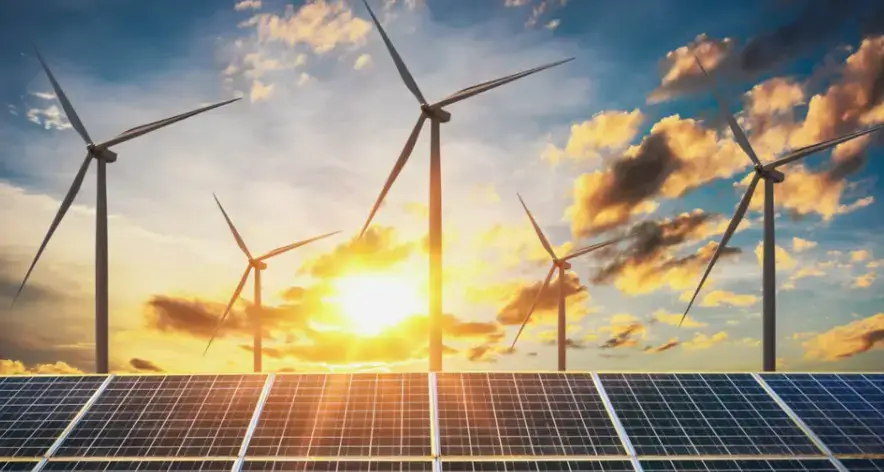Benefits of Solar Energy – Why You Should Consider Making the Switch

Solar energy is a clean, sustainable alternative to fossil fuels. It reduces environmental pollution, which can cause health problems for humans and animals, while preserving natural resources.
Additionally, solar power systems help homeowners save money on their electric bills. Homebuyers also see a positive impact on their home’s value when equipped with a solar energy system.
It’s Free
Solar energy produces electricity without the need to mine, drill, or dig for fossil fuels. This means it doesn’t have harmful gases (such as carbon dioxide) that accumulate in the atmosphere and contribute to global warming. Solar power also reduces reliance on dwindling natural resources and conserves water.
There is an abundance of clean and renewable solar energy available on the planet. In 40 minutes, the amount of sunlight that hits the Earth’s surface is enough to power all the world’s electricity needs for a year.
If you switch to solar energy by purchasing a system or entering a PPA, you will immediately see reduced electric bills. This will allow you to make significant savings in the long run and save money while protecting the environment. Solar systems can even provide an additional source of income for homeowners who install their systems or join community solar programs. A study has shown that homebuyers are willing to pay a premium for homes with solar power systems. This makes going solar an intelligent financial decision for anyone.
It’s Eco-Friendly
The sun’s energy is clean and eco-friendly, which helps protect the environment and reduces carbon emissions. Each kilowatt-hour of solar electricity reduces greenhouse gasses like CO2, nitrogen oxides, and sulfur dioxide. It also cuts air pollutants that can cause various health problems, from respiratory to cardiovascular issues. One of the advantages of solar energy is that it also helps preserve water by reducing the amount of water extracted from the environment to produce energy.
Solar energy systems also help to improve local air quality, reducing the urban heat island effect caused by asphalt, concrete and tall buildings that absorb heat. It can also help decrease the amount of wastewater dumped into rivers and lakes, which can harm wildlife and cause environmental problems.
Homeowners can purchase or lease a solar power system, with financial incentives available for both options. Purchasing a system allows homeowners to sell excess energy back into the grid, a great way to earn extra income. A leased system is still cost-effective and will save money. Still, it may be less financially beneficial if you sell your home.
It’s Sustainable
Solar energy is a highly sustainable source of power. It reduces the need for fossil fuels, which create nitrogen and carbon emissions that contribute to global warming. Additionally, solar systems can be fueled by renewables like wind and biomass to reduce emissions further.
Sunlight is a renewable resource that can be channeled to places where access to the electricity grid is impractical or impossible, including remote and off-grid areas, satellites, and boats. This makes solar energy a perfect choice for developing countries with limited resources and high electricity costs.
Moreover, solar power systems require little maintenance. The panels are durable and can last for decades, even when exposed to intense weather conditions like hailstorms. Solar systems can also be backed up by a battery system that keeps them functioning during non-daylight hours. Solar energy is also highly scalable. By converting to solar, homeowners can save 20-100% on electricity costs while reducing their dependence on polluting fossil fuels. Homeowners can switch to solar by participating in programs like net metering that allow them to sell extra energy back to their utility company, generating even more savings.
It’s Secure
Solar energy is a reliable power source because it doesn’t depend on fossil fuels, which are finite and subject to political instability, price fluctuations, and natural disasters. It’s also safe and quiet, producing no greenhouse gases and not polluting water supplies.
It can be used locally, providing electricity to remote regions without grid access and for spacecraft and boats. It can even be used to generate power in places where channeling energy from a grid is impractical, such as in deserts or islands.
Homeowners who switch to solar can enjoy lower electric bills and increased energy independence by reducing their dependence on the utility grid. They can use net metering to sell excess energy to the utility company or store energy in batteries. Additionally, homes with solar panels can see a four percent increase in value. This makes them a significant investment, paying for their energy savings within ten years. Then, they can continue saving money for the rest of their lives and protect themselves against future utility rate hikes.
It’s Reliable
Solar energy costs rapidly decline as technology advances and economies of scale are achieved. It’s cheaper than many fossil fuels and is a reliable energy source. Solar energy doesn’t produce harmful air pollutants that can acidify land and water ecosystems or corrode buildings. It’s also one of the few renewables with a low water consumption footprint, making it essential to conserve our planet’s limited resources.
Solar energy systems can work in any climate. Although a day without sun can reduce the amount of electricity a system produces, today’s solar technologies are designed to be more resilient than ever. For example, snowfall helps by cleaning panels and causing sunlight to reflect off the surface, increasing production.
As the world’s most abundant resource, solar power is an affordable and reliable alternative to fossil fuels and nuclear energy. It also helps conserve foreign energy expenditures that pay for oil imported from unstable regions of the globe. Moreover, with the ability to sell excess power back into the grid thanks to Net Metering, consumers can turn rising electricity prices to their advantage.
